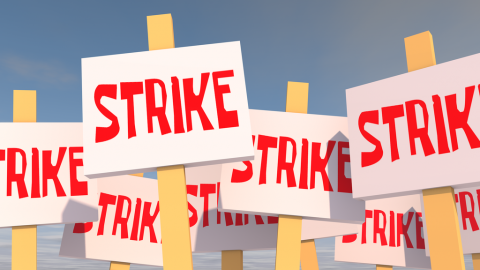Teachers working for substandard wages. Students attending school in trailers because of overcrowding. A lack of school counselors, nurses, and support staff. A funding shortfall of around $1 billion.
Yes, these conditions all describe Tennessee. But the story reporting on them is about schools in our neighboring state of Virginia.
Here’s more of what’s happening next door:
Just a few miles away from the moldy trailers of McLean high school is the proposed site of on Amazon’s new headquarters in Crystal City, Virginia, right across the Potomac River from the Lincoln Memorial. The influx of new residents to northern Virginia attracted by Amazon is only likely to expand the trailer parks sitting outside of many northern Virginia schools.
While Virginia’s Democratic governor Ralph Northam is proposing to increase education funding by $269m, he has proposed to spend nearly three times as much, $750m, to lure Amazon to northern Virginia. The offer was made to secure Amazon’s “HQ2” – the tech company’s second headquarters which it split between Virginia and a second – equally controversial – site in Long Island City, New York.
Teachers are pushing back and now are going out in the first statewide teachers’ strikes in Virginia’s history.
Sound familiar?
It should.
Tennessee has consistently under-funded schools while foregoing revenue and offering huge local and state tax incentives to Amazon.
In fact, while telling teachers significant raises were “unaffordable” last year, Metro Nashville somehow found millions to lure an Amazon hub to the city. This despite a long-building crisis in teacher pay in the city. Combine a city with low pay for teachers with a state government reluctant to invest in salaries, and you have a pretty low value proposition for teachers in our state.
In fact, some teachers are openly expressing concern and highlighting our state’s failed business plan:
I’m starting a business and looking for workers. The work is intense, so the workers should be highly skilled. Experience preferred. Starting salary is 40k with the opportunity to get all the way to 65k after 25 years of staying in the same position. See how dumb that sounds?
Teachers in West Virginia, Arizona, Oklahoma, Kentucky, and Los Angeles have experienced some level of success in recent strikes. Teachers in Virginia were on strike today. These strikes have earned the support of parents and community members and have yielded tangible results both in terms of new investments in schools and increased political power for teachers.
Here in Tennessee, however, teachers have yet to strike. In fact, it’s difficult to find serious discussion of a strike. Sure, our investment in schools is less now than when Bill Haslam took over ($67 less per student in inflation-adjusted dollars). And yes, our teachers earn among the lowest salaries in the region with no significant improvement in recent years. Oh, and our own Comptroller says we’re at least $500 million short of what we need to adequately fund schools. A closer look at what the state’s BEP Committee leaves out reveals that number is very likely $1 billion.
So, when will Tennessee teachers strike?
Or, are the conditions that are unacceptable in so many places across the country just fine for our schools here in Tennessee?
If you’re a teacher and you have thoughts on striking, I’d love to hear from you: andy@tnedreport.com
For more on education politics and policy in Tennessee, follow @TNEdReport
Your support – as little as $1 a month – helps make education reporting sustainable.

For years, I have been told that it is illegal for teachers to strike in Tennesse because Tennessee is a “right to work” state. According to administrators, Tennessee public employees are not allowed to unionize therefore striking is illegal. Is this the truth? Or propaganda created to keep teachers in line and in poverty?
Teachers are in fact allowed to join a union — and many are members of the Tennessee Education Association and local affiliates of the TEA. Yes, striking is technically illegal as noted by George Nerren, above. However, please note that in other states (KY, OK), striking is also illegal — and those states saw massive demonstrations. If an entire school…or district — or state — went on strike, what would happen? Would your district fire all the teachers? Would individual districts take all the teachers to court? Kentucky teachers took sick days to create a nearly statewide “sick out” during the pension fight last year. Those teachers were not fired. To answer your question, Beth, collective action builds power and those telling you “not to strike” are not on your side.
TCA 49-5-606 (b) (4) states that engaging in a strike is an unlawful act. Further TCA 49-5-607 states that if the chancery court rules that a strike has occurred, employees may be subject to dismissal and shall forfeit their claim to tenure status and revert to probationary status for five years.
It’s simply not worth it.
Pingback: Is a Teacher Strike Looming in Tennessee? - Tennessee Star
Pingback: Trump Resister Encouraging Illegal Teacher Strikes in Tennessee Has Links to a Left-Wing Organization That Received Funding from George Soros - Tennessee Star
Pingback: Over 1,400 Metro Nashville Teachers, Staff Scoff at Proposed Three Percent Raise, Call Out Sick Friday - Tennessee Star
Pingback: Former Union Organizer Pitching for a Tennessee Teacher Strike - Concerned Educators Against Forced Unionism